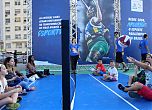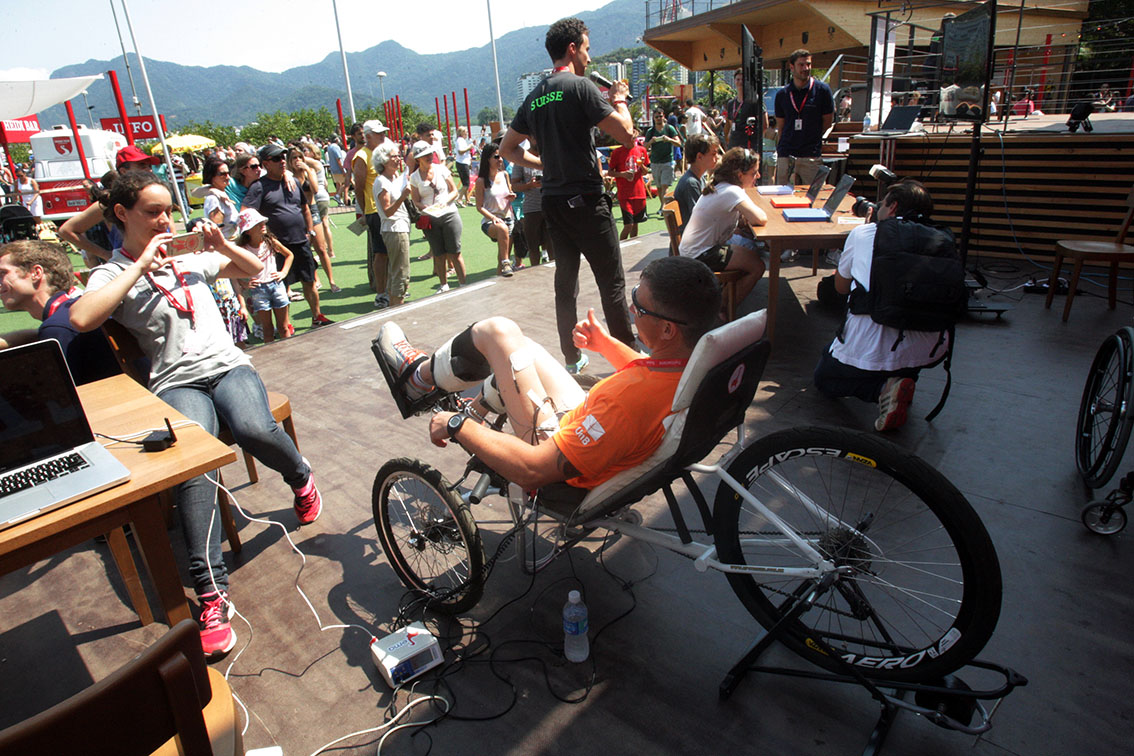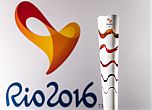
An exhibition of the latest equipment, with high-end features of the so-called assistive technology, with solutions that contribute to providing or expanding functional abilities of people with disabilities, marked the reopening of the House of Switzerland, at Lagoa Rodrigo de Freitas, on Wednesday (Sept. 7). In addition to the same attractions of the Olympic period, the place will have a different program, geared specifically for the Paralympics. “It will not be the same House of Switzerland in the Olympics. Switzerland has a tradition of rehabilitation technologies, and we will have debates, exhibitions, and presentations on the topic,” said Nicolas Bideau, ambassador of the Swiss presence in Brazil.
A stray bullet victim four years ago in Brasilia, Stephen Lopes, 38, was paralyzed and became a Paralympic rowing athlete, and currently sailing, but his modality (Hansa 303) is not part of the Paralympic sports. On the other hand, he will be the only Latin American athlete at the Cybathlon, a competition among scientists around the world, that will be held in Zurich, in October. Stephen is a pilot of the EMA Trike tricycle, developed for enabling people with spinal cord injuries to ride, which will be shown during a press conference at Rio Media Center (RMC) Auditorium on Thursday (Sept. 8).
Based on functional electrical stimulation technology, the three-wheel bike allows the physically disabled to ride, using the electrodes that trigger the leg muscles.” The computer takes the role of the brain and sends stimuli to the legs so that they can move. It is priceless to see my new cycling legs,” said Stephen.
The EMA Project (Empowerment, Mobility, and Autonomy) is being developed at the University of Brasilia (UNB) for the last two years, by a team of 12 people, including electrical engineers and physiotherapists. In addition to the EMA Trike, the House of Switzerland also exhibited the BCI (Brain Computer Interface), which uses brain stimulation to control an avatar in a computer game. It was developed for people with even greater movement restrictions, such as quadriplegics. “Our idea is to foster the development of technologies that are the most advanced possible, and that in the future can serve to help all people with disabilities,” says electrical engineering professor Antonio Padilha, the EMA Project coordinator.
The House of Switzerland will also have debates promoted by the Red Cross to show what originates the Paralympic athletes. “Accidents are the leading cause of the Paralympic athletes’ disabilities, and the second leading cause are the wars, including urban conflicts within the big cities,” explained Nicolas Bideau. He said the Red Cross also wants to recruit more Brazilians to work in the institution.
A representative of Swissnex, a state-owned company linked to the Department of Education, Innovation and Research of Switzerland, Gioia Deucher revealed that the company opened an office in Rio, in April 2014, to promote scientific collaboration with the Brazilians. “It is our fifth office in the world and the first in Latin America. Brazil is our priority partner,” she says. Gioia explained that executives were in doubt between opening the office in Rio or São Paulo, but the Olympics were a strong factor in Rio’s choice. “We weighed several factors, but certainly the Rio 2016 Games, and the guarantee of global attention during this period weighed for Rio.”
The House of Switzerland will be open every day until September 18, from 11 am to 11 pm. This Sunday (Sept. 11), the main attraction will be the chance to play table tennis with Paralympic athletes. Also planned are visits by the Paralympic delegations of Congo and Afghanistan, among other activities.



